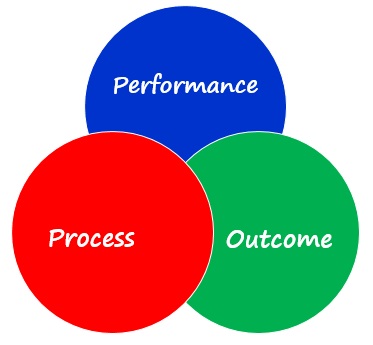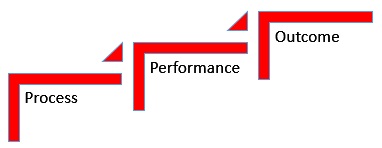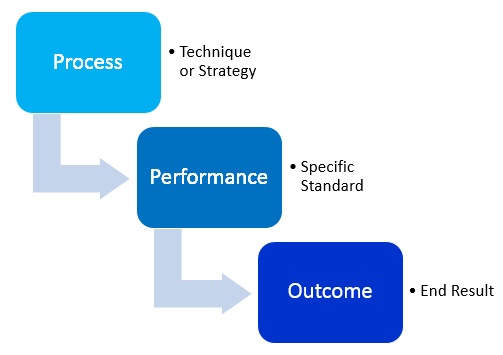Three Types of Athletic Goals
Setting Athletic Performance Goals
Goal setting is one of the most important skills you can use to help you achieve optimal performance. The goal setting process helps you understand your current performance level and then assess what steps you need to take to reach your ultimate performance level.
There are three types and levels of athletic goals:
- Outcome goals
- Performance goals
- Process goals
Three Types of Goals
Outcome Goals – This type of goal refers to the desired end result. These goals are those that compare your performances with those of other athletes. For example, coming in the top five or winning the tournament. In both these examples the outcome is connected top and depends on the performances of others.
Performance Goals – This type of goal identifies a specific standard to be achieved. These standards are independent of other variables. For example, increase your batting average from .270 to .310, or run the 100 meter race in 12.2 seconds. You have much better control over the results of these goals than you do of outcome goals.
Process Goals – This type of goal deals with the technique or strategy necessary to perform well. These goals are used to improve the execution of a skill. For example, you may strive to run the 100 meter race with perfect form, or make solid contact with a golf ball as you strike it. These goals focus on your individual actions and are not dependent or connected to the performance or actions of others.
Connection between the Types of Goals
These types of goals are categorized by how much control you have over it. You have the most control over process goals and the least control over outcome goals. When setting goals, you should to visualize and set a desired outcome, but more importantly you should focus on the process and your performance.
Experts have found individual performance improves quicker if you set systematic goals that are focused on the process and performance, rather than focused on the outcome of competition. Process goals feed into performance goals, which feed into outcome goals. If you focus on process and performance goals you have done all you can within your control to achieve your outcome goal. By setting the foundation with process and performance goals the outcome goals likely takes care of itself.



